Lady Justice Is Blind
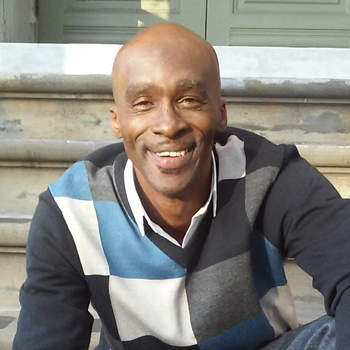
Terrence Coffie, courtesy of NYU.
“They say Lady Justice is blind so she’s supposed to meet our justice equally then, right?”
On December 10th, 2020 Brandon Anthony Micah Bernard was executed after spending 21 years on death row for a violent robbery involving a carjacking in 1999. The carjacking resulted in the murder of couple Todd and Stacie Bagely, and although it was proven that Bernard was not the murderer, his sentence reflected such. Media outrage became widespread about 3 days before the execution, and petitions and phone numbers to call were spread around to hopefully change the mind of elected officials within the Trump Administration.
Many people on social media began to draw parallels between the sentences of several white school shooters and serial murderers to the heavy sentence of Bernard. An especially powerful comparison was that of the sentence for Charleston church shooter, Dylann Roof, who was given Burger King by several officers after being brought into police custody. The idea that Bernard was only an accomplice to murder and was put on death row while Dylann Roof can kill nine people in a hate-motivated crime and then be treated to a meal is a terrifying contrast. Many Americans have been expressing their grief and remorse for Bernard and his family in the past couple of days. This event brought up many old feelings of despair that Black Americans were experiencing during the protests of this summer and frankly, our entire lives.
It is difficult for me as a writer and as a black woman to find words to describe such crushing feelings of defeat and despair this news evokes. And although it hurts to say, Bernard’s case feels like a repeat of what Black Americans have been seeing all throughout American history. Watching his name become not only a statistic but also a buzz-word for virtue signalers in the same way George Floyd, Breana Taylor, Ahmaud Arbery, and so many others’ names have, makes justice feel like a never-ending cycle of defeat.
In that light, I felt as though my interview with Professor of Forensic Justice at NYU, Terrence Coffie, was well suited for this newest edition of the Berkeley Carroll Blotter.
Terrence Coffie grew up in Florida and was in and out of the carceral system for drug possession and other charges from 20 years old until he was 39. The quick version of his powerful story is that after almost 20 years of being a part of the system he decided to finally get his education. He joined an education program after getting his G.E.D in prison, got an opportunity to attend college in New York, graduated at the top of his class for social work, and also graduated National Association of Social Workers (NASW) student of the year. Due to all of this academic success, he was offered a position to teach forensic justice at NYU and has been a professor there ever since. He is now in his early 50’s.
I met Professor Coffie at a writing internship last summer. He was invited to speak because of his inspiring story and how it connected to the theme of that summer’s workshop on restorative justice.
Looking back at my previous education surrounding restorative justice, the first thing we get wrong when it comes to spreading awareness is that we focus too much on the people who were wrongly incarcerated. For most people, the most visible members of this movement are those who were never supposed to go to jail in the first place. But what if you did do something wrong? What if we as humans dare to make mistakes? Every day we ask one another to extend our perspectives to see each other beyond our actions and beyond our social transcripts. Why are we somehow unable to extend this same gratitude to a 22-year-old man who got caught with a drug possession charge or a family who illegally immigrated to the U.S to give their children a better life? To the 18-year-old kid who was an accomplice to a crime he didn’t commit? With that, I would like to ask you as the reader to contemplate your definition of open-mindedness—who do you grant your open mind to, and how is your definition of right and wrong biased?
“There are two spectrums in which we live. The way we see it through Black America and the way we see it through White America,” says Coffie. “You know how they say it—where the white people live and where the black people live! All you gotta do is get on the A Train and at 125th you’ll be in poverty. And on that same train, the same city, you’ll step out on West 4th. The Tale of Two Cities.” In this, Coffie begins to describe what I like to call the permeable membrane paradox. This is the idea that we are all living in two different worlds and that like a permeable membrane, some can come in and out, while others are locked in on either side. For Professor Coffie, it’s the double world of having been incarcerated and working at an elite university like NYU. Being a part of this membrane isn’t inherently a bad thing. It’s inevitable and helps you to gain a better understanding of how to help the communities you belong to. To put it simply, being part of this membrane provides perspective. However, what happens to those who are unable to “escape” this membrane? Does our moral obligation to empathize with others stop at the end of this metaphorical membrane?
Towards the middle of our interview, Professor Coffie recalled Hillary Clinton’s usage of the term “super predator” in reference to young black men after the passage of the 1994 Crime bill. “That language put forth an idea. That idea formulated perceptions and those perceptions manifested themselves into legislation… Because they were no longer dealing with humans, so their inhumane way of dealing with this was justified. A super predator is not a human being. A super predator is a monster.”
The term “super predator” was coined by Princeton professor John DiIulio. It was defined as a generation of “radically impulsive, brutally remorseless youngsters, including ever more preteenage boys, who murder, assault, rape, rob, burglarize, deal deadly drugs, join gun-toting gangs and create serious communal disorders,” (USA Today). Even in the definition of the phrase the dehumanizing language rests. We live in a society where our education system perpetuates this narrative about an entire demographic of its citizens. This is the same education system that those same stereotyped individuals are expected to not only learn from but succeed in as well.
Hearing Professor Coffie spit “super predator” and “monster” struck a nerve. I personally don’t have much experience with the criminal justice system except for the fact that I’m black. I come from a relatively privileged middle-class family and none of my immediate family members have spent time incarcerated. However, the very idea that my race is my connection to the criminal justice system coincides with the “super predator” rhetoric.
I remembered mentioning a couple of times that it felt wrong for every Black History Month BC Talk to be centered around the subjugation of black people and the negative aspects of being black rather than celebrating black culture. Whenever Black History is mentioned, we only talk about either slavery, segregation, or the criminal justice system. We make it seem as though the only parts of Black History that matter are the parts where we are put down rather than what we created out of our oppression. When you celebrate black culture, you are celebrating your black students. You aren’t celebrating us or even seeing us when you make us watch a traumatizing film and then sit in a room with our white peers to discuss our trauma. I think often predominantly white institutions have their hearts in the right place in terms of trying to educate their students on systemic racism but in that, they forget to take accountability for their role in systemic racism and the emotional weight their students of color—particularly their black students—have to bear when taking part in these conversations. Whether we verbally participate or not, we all feel that burden and we can’t just forget about it when we have to go back to our classes. Racial discussions in predominantly white institutions are catered to white fragility and thought. Not only is there a lack of vulnerability coming from white people but a constant hushed refusal to take true accountability for how they benefit and participate in systemic racism. In our society, we are taught about racism as a commodity, as something separate and outside of ourselves. But racism is very human. It is very tangible, and racism is very close to us. Every single aspect of American racism is sitting on our left shoulder, whether we choose to look at it or not. As Professor Coffie said in our interview, “Until we address the humanity of our criminal justice system, we will continue this cycle of racism, poverty, inequity, and criminality.”
With this, we begin to see how the inhumane “super predator” rhetoric from 1995 remains in subtle ways. You abandon the emotions of your students of color and make them watch a traumatizing movie such as “The Hate U Give” or “Just Mercy” and then ask them to relive that same trauma in a discussion afterward. Why should they have to offer you the deepest part of their psyche while you can just sit and silently nod and maybe pat them on the back and say, “I hear you and I see you.” I have to watch as my deepest racial trauma is being turned into discussion pieces right before my eyes.
You can cry and empathize with Bryan Stevenson and Angie Thomas when you read their books and watch their movies, but when you see a group of black students laughing loudly in the cafeteria you shoot us the same glares that were shot at Martin Luther King during his “I Have a Dream” speech. You frown at the “super predator” but you call me aggressive when I’m defending my point in class. It’s a different language, but the same message. It’s commodified in discussion and criminalized when existing everywhere else.
Which raises the question, who would be motivated to succeed in a system that doesn’t view its citizens as human? Where would the citizens find incentive to advance in a system that was created to purge them out? How is success even truly attainable at that point? Anyone can become a monster trying to survive in a system that exists to kill them. In discussing the inevitability of our system’s deep connection with black youth, Professor Coffie gave an interesting analogy. “If I drop a whole bunch of cheese into a box of rats, what you’d see is all the rats scurrying to get their own piece of cheese, dapping each other up, ‘how you doin man’, yada yada yada. Now take those same rats and you starve them for two weeks. After the two weeks, you drop only one piece of cheese into the box. What do you think they’re going to do? Are they in essence trying to hurt one another to get to the cheese or are they just trying to survive? Are they inherently violent rats? Is it fair to label them as such? That’s what our current society does to the poor. And you know what I like to say—crime is the bastard child of poverty.”
And although we are not rats and we are not begging for cheese, the analogy still rings true. The system treats our communities like rats and we are the bastard children of our system. As Adam Foss recalled while making his speech at Berkeley Carroll last year, the kid he was defending didn’t steal because he wanted to or because he was a problem kid, he stole because he wanted to see the look on his mother’s face when she saw she didn’t have to worry about money the next month. He stole because no one was giving him resources so he could buy. Nobody is just going to stand around and starve to death.
So in the midst of our collective grieving not only for Bernard and his family but for all the victims of our system, we must ask ourselves the same question proposed at the beginning of the article: who are you willing to grant your open mind to? As Coffie said towards the ending of our interview, “We say we are a society of second chances… Do we become inhumane to address inhumanity? Do we sacrifice our morals and values to punish each other? And sometimes it feels like we want to do that, but what does that compromise for our integrity?” Reform is not possible if our own justice system must compromise its own morals— stated in our Constitution and Bill of Rights—for the sake of revenge. What kind of retribution rests in the death of Brandon Bernard?

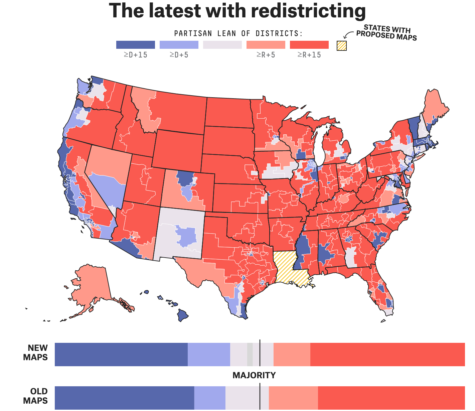
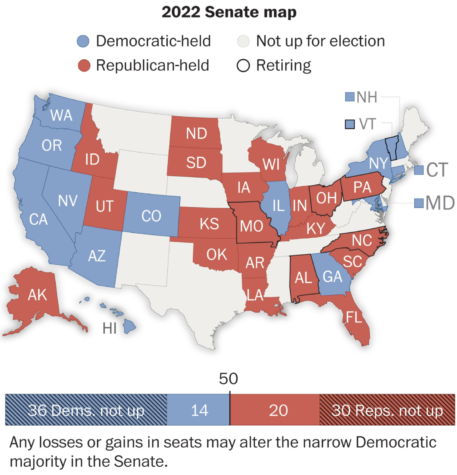
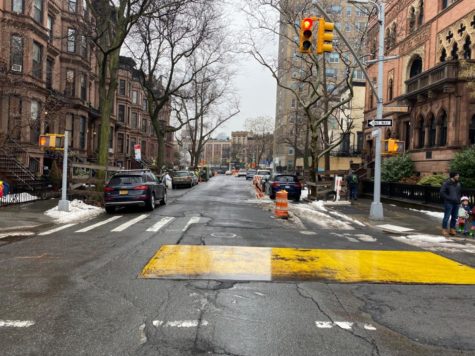
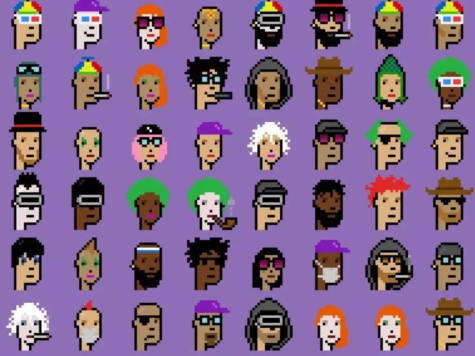
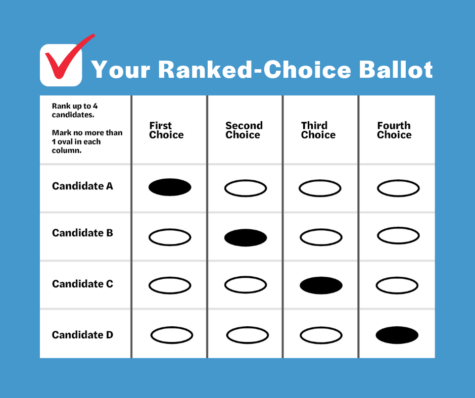

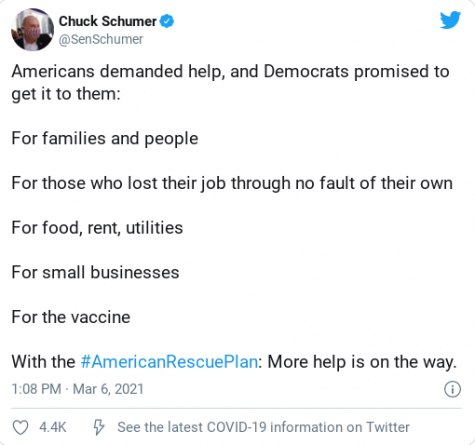
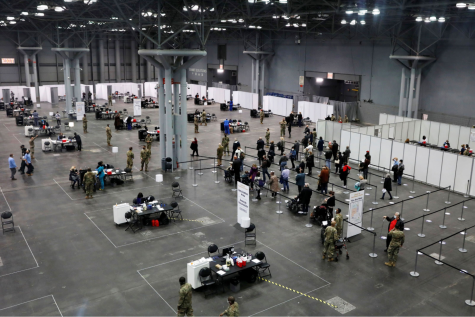

Mikec • Dec 21, 2020 at 7:58 am
As a boy growing up in a project, we witnessed this kind of thing first hand. With 223 other mixed cultures, we were looked at as the losers, low life’s, no bodies of the world. The thing that stuck out the most during this time was my friend Lenny. Because he was Africa American out of the five of us he was always the one the cops would grab first. Questioned, embarrassed, demeaning, as it was at the time, we realized at this time it was something we would deal with for the rest of our life. Sad but true fast forward to today, and it hasn’t change for bright young men. Just my thoughts!